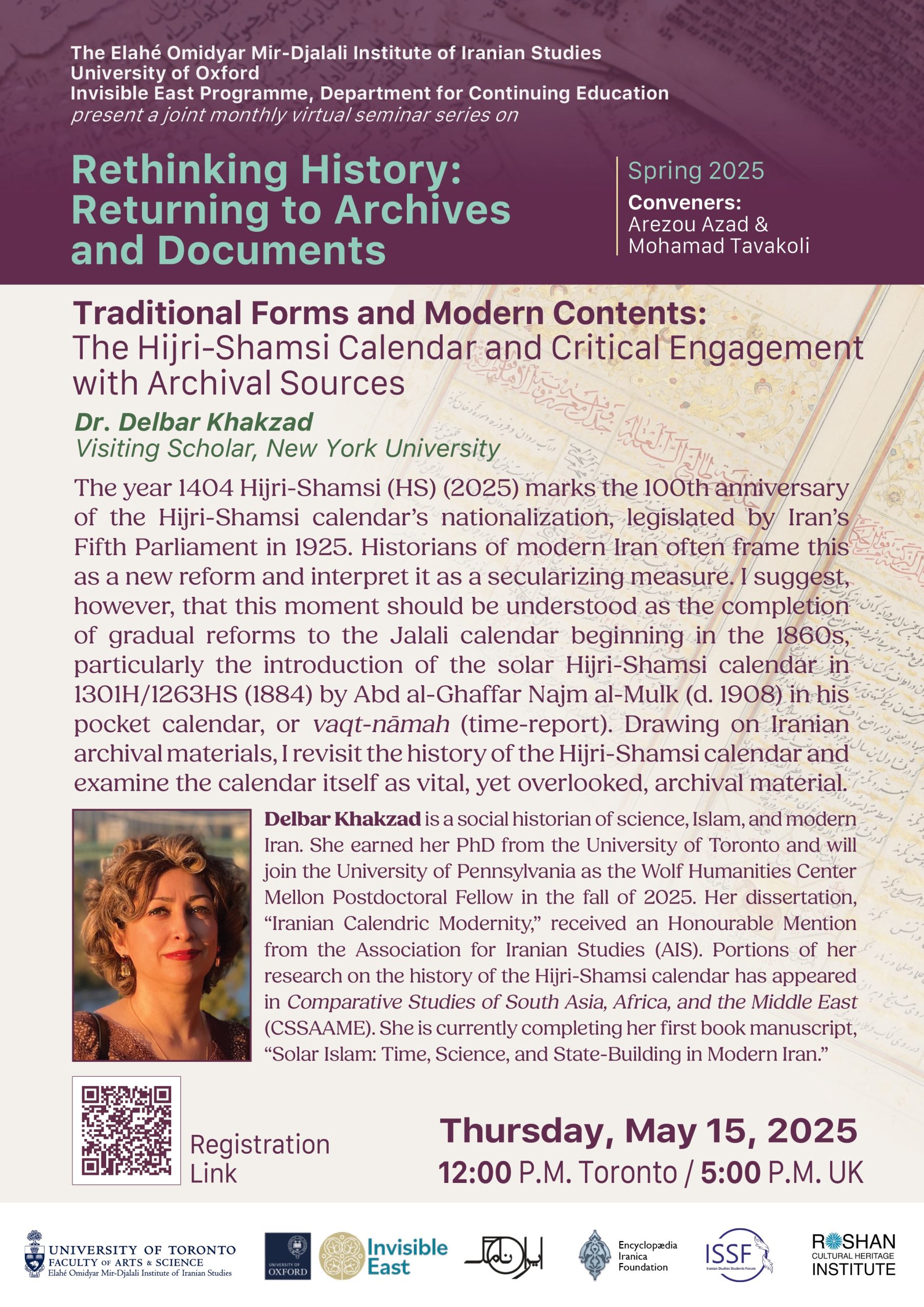

The Elahé Omidyar Mir-Djalali Institute of Iranian Studies, University of Toronto, and the Invisible East Programme, Department for Continuing Education, University of Oxford jointly present
“Traditional Forms and Modern Contents: The Hijr-Shamsi Calendar and Critical Engagement with Archival Sources”
Dr. Delbar Khakzad, New York University
Thursday, 15 May 2025, 12:00 p.m. Toronto/5:00 p.m. UK
Zoom Meeting Registration:
https://utoronto.zoom.us/meeting/register/4EnVuj2YSxeDsJOkivlBkA
After registering, you will receive a confirmation email containing information about joining the meeting.
Abstract:
The year 1404 Hijri-Shamsi (HS) (2025) marks the 100th anniversary of the Hijri-Shamsi calendar’s nationalization, legislated by Iran’s Fifth Parliament in 1925. Historians of modern Iran often frame this as a new reform and interpret it as a secularizing measure. I suggest, however, that this moment should be understood as the completion of gradual reforms to the Jalali calendar beginning in the 1860s, particularly the introduction of the solar Hijri-Shamsi calendar in 1301H/1263HS (1884) by Abd al-Ghaffar Najm al-Mulk (d. 1908) in his pocket calendar, or vaqt-nāmah (time-report). While some historians contextualize the 1925 legislation within earlier reform debates in the Second Majlis (1910), they too interpret it as a secularizing process. Yet beyond these two legislative acts, there is little historical explanation for the original adoption of a calendar that combines a Hijri-Islamic epoch with ancient Persian month names. This presentation challenges the secular narrative and argues that the obscurity surrounding the calendar’s nineteenth-century developments is partly due to the continuity of traditional forms of knowledge production, forms often dismissed as incapable of facilitating modern changes, yet which in fact functioned as vehicles of modernity by enabling the incorporation of new contents. Drawing on Iranian archival materials, I revisit the history of the Hijri-Shamsi calendar and examine the calendar itself as vital, yet overlooked, archival material.
Bio:
Delbar Khakzad is a social historian of science, Islam, and modern Iran. She earned her PhD from the University of Toronto and will join the University of Pennsylvania as the Wolf Humanities Center Mellon Postdoctoral Fellow in the fall of 2025. Her dissertation, “Iranian Calendric Modernity,” received an Honourable Mention from the Association for Iranian Studies (AIS). Portions of her research on the history of the Hijri-Shamsi calendar have appeared in Comparative Studies of South Asia, Africa, and the Middle East (CSSAAME). She is currently completing her first book manuscript, “Solar Islam: Time, Science, and State-Building in Modern Iran.”